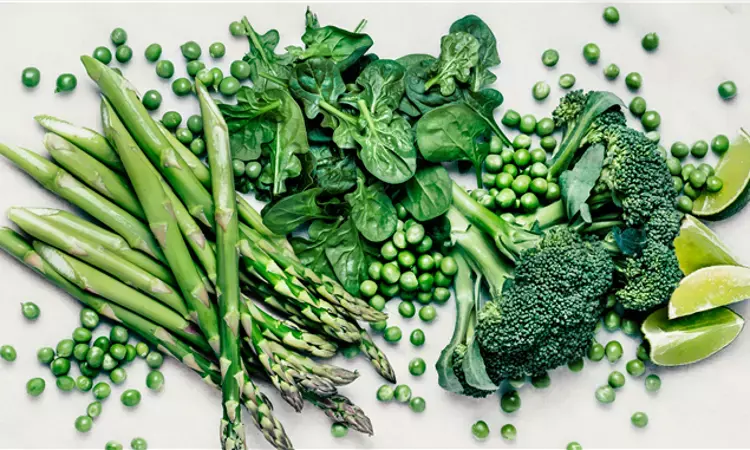- Home
- Medical news & Guidelines
- Anesthesiology
- Cardiology and CTVS
- Critical Care
- Dentistry
- Dermatology
- Diabetes and Endocrinology
- ENT
- Gastroenterology
- Medicine
- Nephrology
- Neurology
- Obstretics-Gynaecology
- Oncology
- Ophthalmology
- Orthopaedics
- Pediatrics-Neonatology
- Psychiatry
- Pulmonology
- Radiology
- Surgery
- Urology
- Laboratory Medicine
- Diet
- Nursing
- Paramedical
- Physiotherapy
- Health news
- Fact Check
- Bone Health Fact Check
- Brain Health Fact Check
- Cancer Related Fact Check
- Child Care Fact Check
- Dental and oral health fact check
- Diabetes and metabolic health fact check
- Diet and Nutrition Fact Check
- Eye and ENT Care Fact Check
- Fitness fact check
- Gut health fact check
- Heart health fact check
- Kidney health fact check
- Medical education fact check
- Men's health fact check
- Respiratory fact check
- Skin and hair care fact check
- Vaccine and Immunization fact check
- Women's health fact check
- AYUSH
- State News
- Andaman and Nicobar Islands
- Andhra Pradesh
- Arunachal Pradesh
- Assam
- Bihar
- Chandigarh
- Chattisgarh
- Dadra and Nagar Haveli
- Daman and Diu
- Delhi
- Goa
- Gujarat
- Haryana
- Himachal Pradesh
- Jammu & Kashmir
- Jharkhand
- Karnataka
- Kerala
- Ladakh
- Lakshadweep
- Madhya Pradesh
- Maharashtra
- Manipur
- Meghalaya
- Mizoram
- Nagaland
- Odisha
- Puducherry
- Punjab
- Rajasthan
- Sikkim
- Tamil Nadu
- Telangana
- Tripura
- Uttar Pradesh
- Uttrakhand
- West Bengal
- Medical Education
- Industry
Green Mediterranean Diet tied to significant reduction of NAFLD: DIRECT-PLUS Trial

Mediterranean (MED) diet, relatively rich in plant food sources, has been associated with reduced prevalence of NAFLD, improves cardiometabolic and cardiovascular biomarkers, and reduces all-cause mortality. A recent study suggests that green Mediterranean (MED) diet reduces intrahepatic fat more than other healthy diets and cuts non-alcoholic fatty liver disease (NAFLD) in half. The study findings were published in the journal Gut on January 18, 2021.
Polyphenols, secondary metabolites of plants with antioxidant properties are involved in the defence against several malignancies, cardiovascular diseases, diabetes, osteoporosis and neurodegenerative diseases, as well as reducing hepatic steatosis. The MED diet has a relatively high content of polyphenols. In the traditional Spanish MED diet, the mean polyphenol intake was estimated to be between ~2500 and 3000 mg/day as compared with ~1000 mg/day in a western-style diet. Adherence to vegetarian and plant-based diets was also associated with a lower incidence of NAFLD. In the current 18-month Dietary Intervention Randomized Controlled Trial Polyphenols Unprocessed (DIRECT PLUS), researchers of Israel, examined the effectiveness of green-Mediterranean (MED) diet, further restricted in red/processed meat, and enriched with green plants and polyphenols on the non-alcoholic fatty liver disease (NAFLD), reflected by intrahepatic fat (IHF) loss.
The DIRECT PLUS trial was an open-label, randomized trial of 294 participants with abdominal obesity/dyslipidaemia. Researchers assigned them to receive healthy dietary guidelines (HDG), MED and green-MED weight-loss diet groups, all accompanied by physical activity. Both MED groups consumed 28 g walnuts per day; the green-MED group consumed green tea and Mankai (a Wolffia globosa aquatic plant strain) green shake. They used proton magnetic resonance spectroscopy (MRS) to quantify the IHF% changes.
Key findings of the study were:
• Upon analysis, researchers observed a drop in the prevalence of NAFLD to 54.8, 47.9, and 31.5 per cent with HDG, MED, and green-MED, respectively.
• Despite similar moderate weight-loss in both MED groups, they noted that the green-MED group achieved almost double IHF% loss (−38.9% proportionally), as compared with MED (−19.6% proportionally) and HDG (−12.2% proportionally).
• After 18 months, they found that both MED groups had significantly higher total plasma polyphenol levels when compared with the HDG group, with higher detection of Naringenin and 2-5-dihydroxybenzoic-acid among the green-MED group.
• They also noted an independent association noted for greater IHF percentage loss with increased Mankai and walnut intake, decreased red/processed meat consumption, improved serum folate and adipokines/lipids biomarkers, and changes in microbiome composition and specific bacteria.
The authors concluded, "The new suggested strategy of green-Mediterranean diet, amplified with green plant-based proteins/polyphenols as Mankai, green tea, and walnuts, and restricted in red/processed meat can double IHF loss than other healthy nutritional strategies and reduce NAFLD in half".
For further information:
https://gut.bmj.com/content/early/2021/01/04/gutjnl-2020-323106
Dr Kartikeya Kohli is an Internal Medicine Consultant at Sitaram Bhartia Hospital in Delhi with super speciality training in Nephrology. He has worked with various eminent hospitals like Indraprastha Apollo Hospital, Sir Gangaram Hospital. He holds an MBBS from Kasturba Medical College Manipal, DNB Internal Medicine, Post Graduate Diploma in Clinical Research and Business Development, Fellow DNB Nephrology, MRCP and ECFMG Certification. He has been closely associated with India Medical Association South Delhi Branch and Delhi Medical Association and has been organising continuing medical education programs on their behalf from time to time. Further he has been contributing medical articles for their newsletters as well. He is also associated with electronic media and TV for conduction and presentation of health programs. He has been associated with Medical Dialogues for last 3 years and contributing articles on regular basis.
Dr Kamal Kant Kohli-MBBS, DTCD- a chest specialist with more than 30 years of practice and a flair for writing clinical articles, Dr Kamal Kant Kohli joined Medical Dialogues as a Chief Editor of Medical News. Besides writing articles, as an editor, he proofreads and verifies all the medical content published on Medical Dialogues including those coming from journals, studies,medical conferences,guidelines etc. Email: drkohli@medicaldialogues.in. Contact no. 011-43720751


